Ulrike Sattler
Conjunctive Query Answering for the Description Logic SHIQ
Oct 31, 2011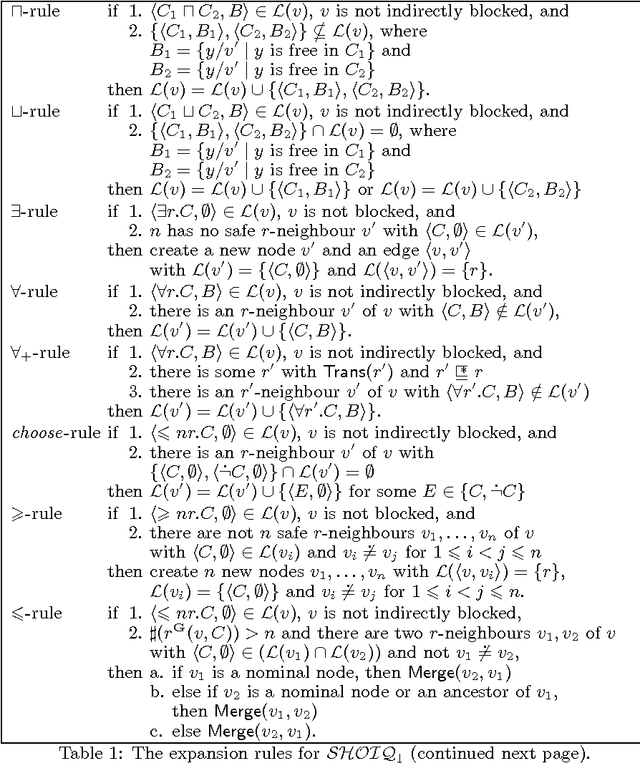
Abstract:Conjunctive queries play an important role as an expressive query language for Description Logics (DLs). Although modern DLs usually provide for transitive roles, conjunctive query answering over DL knowledge bases is only poorly understood if transitive roles are admitted in the query. In this paper, we consider unions of conjunctive queries over knowledge bases formulated in the prominent DL SHIQ and allow transitive roles in both the query and the knowledge base. We show decidability of query answering in this setting and establish two tight complexity bounds: regarding combined complexity, we prove that there is a deterministic algorithm for query answering that needs time single exponential in the size of the KB and double exponential in the size of the query, which is optimal. Regarding data complexity, we prove containment in co-NP.
Reasoning with Individuals for the Description Logic SHIQ
May 11, 2000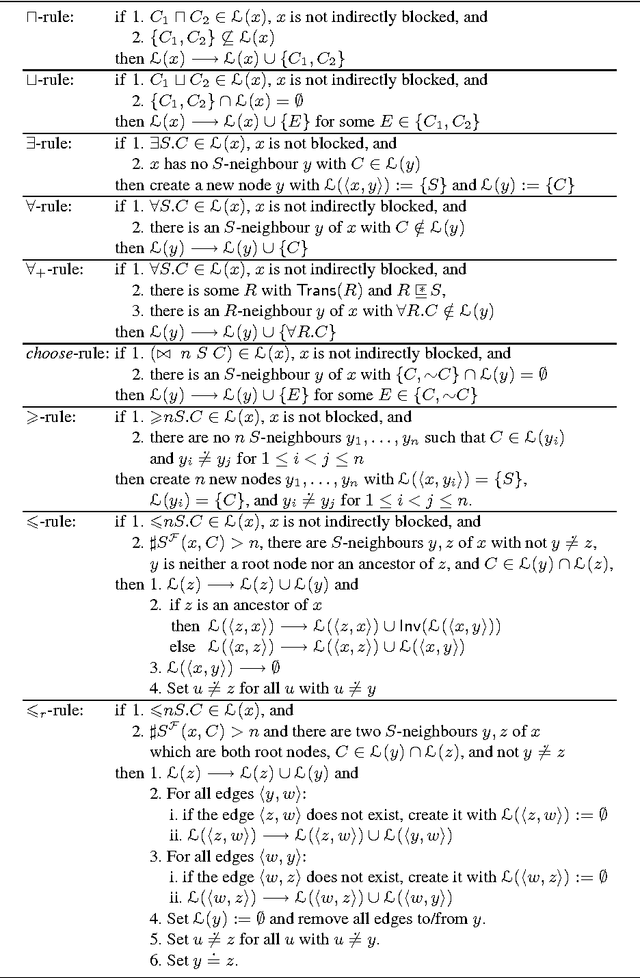
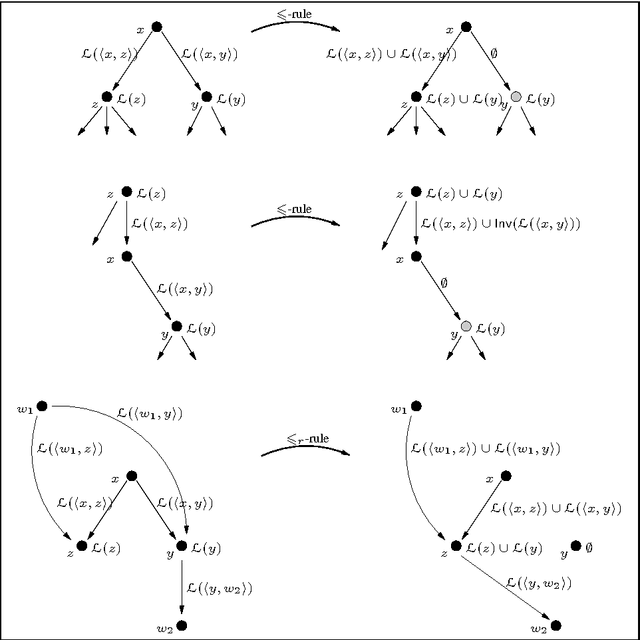
Abstract:While there has been a great deal of work on the development of reasoning algorithms for expressive description logics, in most cases only Tbox reasoning is considered. In this paper we present an algorithm for combined Tbox and Abox reasoning in the SHIQ description logic. This algorithm is of particular interest as it can be used to decide the problem of (database) conjunctive query containment w.r.t. a schema. Moreover, the realisation of an efficient implementation should be relatively straightforward as it can be based on an existing highly optimised implementation of the Tbox algorithm in the FaCT system.
Practical Reasoning for Expressive Description Logics
May 10, 2000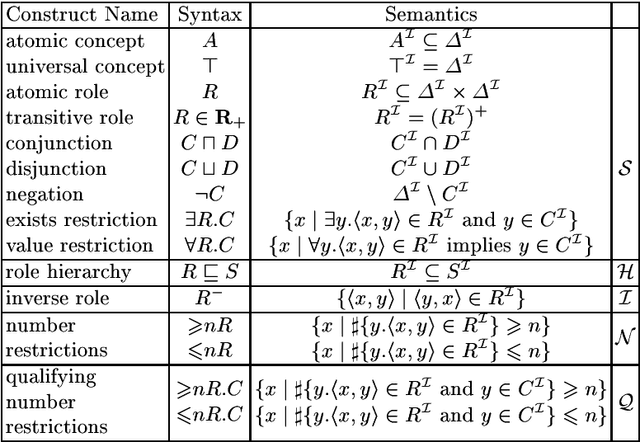
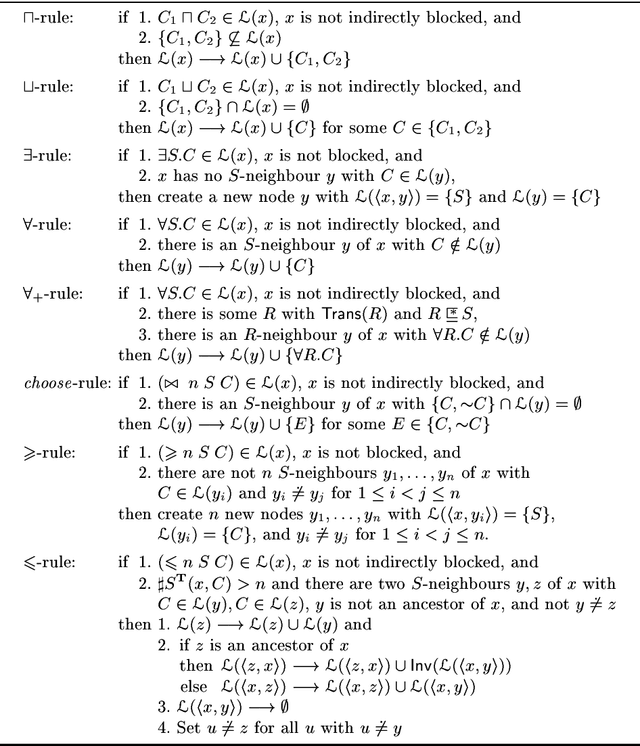
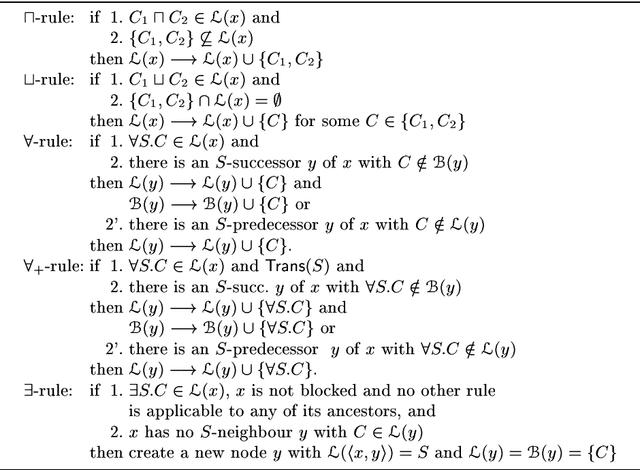
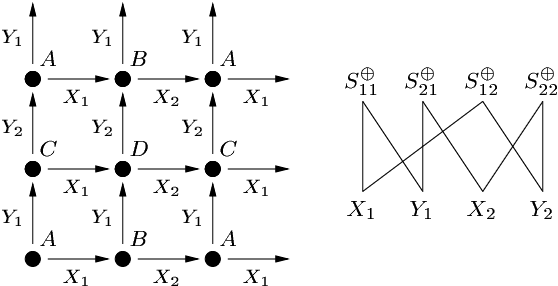
Abstract:Description Logics (DLs) are a family of knowledge representation formalisms mainly characterised by constructors to build complex concepts and roles from atomic ones. Expressive role constructors are important in many applications, but can be computationally problematical. We present an algorithm that decides satisfiability of the DL ALC extended with transitive and inverse roles, role hierarchies, and qualifying number restrictions. Early experiments indicate that this algorithm is well-suited for implementation. Additionally, we show that ALC extended with just transitive and inverse roles is still in PSPACE. Finally, we investigate the limits of decidability for this family of DLs.
Practical Reasoning for Very Expressive Description Logics
May 09, 2000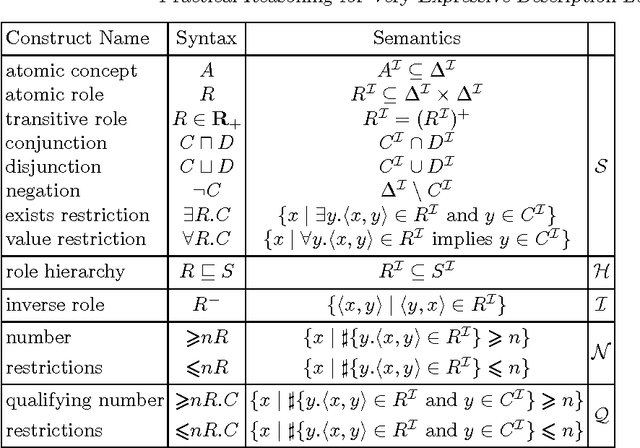
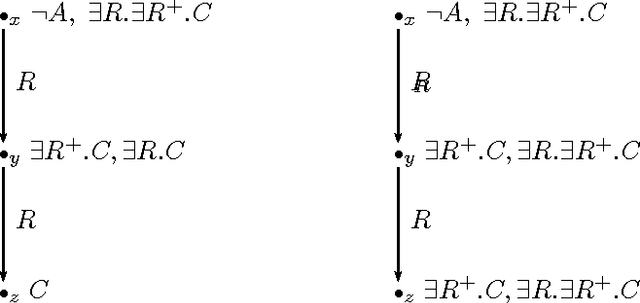
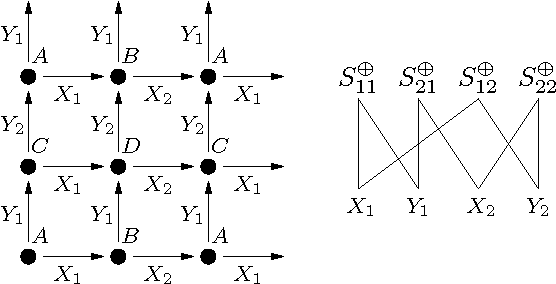
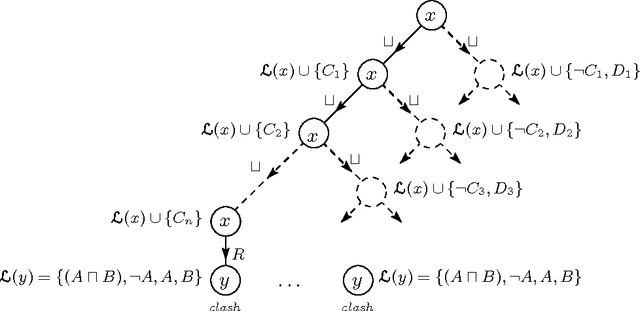
Abstract:Description Logics (DLs) are a family of knowledge representation formalisms mainly characterised by constructors to build complex concepts and roles from atomic ones. Expressive role constructors are important in many applications, but can be computationally problematical. We present an algorithm that decides satisfiability of the DL ALC extended with transitive and inverse roles and functional restrictions with respect to general concept inclusion axioms and role hierarchies; early experiments indicate that this algorithm is well-suited for implementation. Additionally, we show that ALC extended with just transitive and inverse roles is still in PSPACE. We investigate the limits of decidability for this family of DLs, showing that relaxing the constraints placed on the kinds of roles used in number restrictions leads to the undecidability of all inference problems. Finally, we describe a number of optimisation techniques that are crucial in obtaining implementations of the decision procedures, which, despite the worst-case complexity of the problem, exhibit good performance with real-life problems.
 Add to Chrome
Add to Chrome Add to Firefox
Add to Firefox Add to Edge
Add to Edge